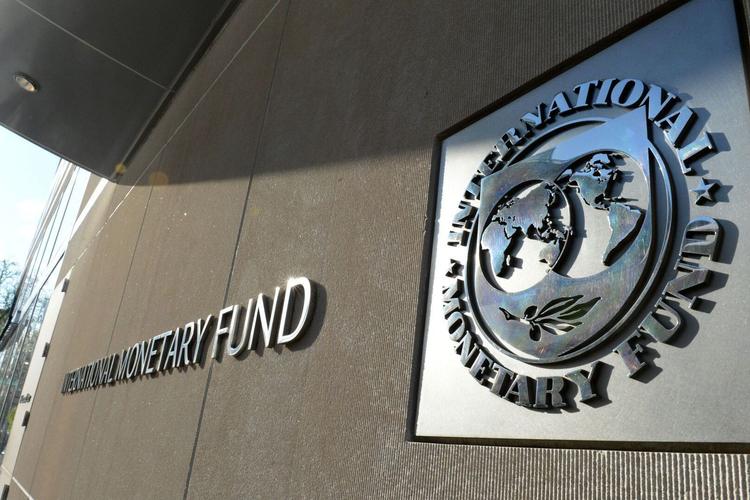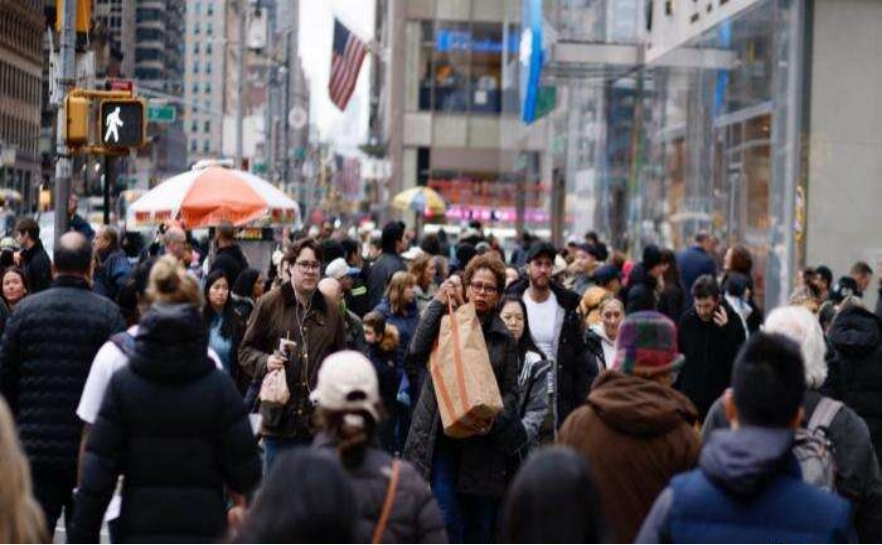
On October 14th, the latest World Economic Outlook Report released by the International Monetary Fund (IMF) drew global attention: The global economic growth forecast for 2025 was slightly raised by 0.2 percentage points to 3.2%, while the forecast for 2026 remained unchanged at 3.1%. This minor adjustment seems to send out positive signals, but in fact it reveals the complex situation of the global economy under multiple pressures - short-term resilience and long-term risks are in a sharp game, and the countercurrent in the trade field has become a key variable that will shape the future direction.
The upward revision of growth expectations is supported by multiple temporary factors and structural driving forces. In the short term, the pre-implementation effect of the US tariff policy on imports and exports is particularly significant. Importers from various countries have stockpiled goods in advance to avoid the risk of additional tariffs, which objectively has pushed up the trade data for a certain period. More significant is the growth contribution of emerging markets. The IMF has raised the growth rate of emerging markets and developing economies by 0.1 percentage point to 4.2% in 2025. Among them, China's economic growth forecast of 4.8% has become an important pillar. Fiscal expansion, the recovery of consumption and the early layout of foreign trade have jointly built economic resilience. In addition, the intensive investment in the field of artificial intelligence has driven a sharp increase in semiconductor demand. Coupled with the improvement of the financial environment in some economies, it has injected structural momentum into growth.
However, the risk warnings beneath this optimistic backdrop are even more worthy of vigilance. The IMF clearly pointed out in its report that the tariff shock is continuously weakening the growth outlook. Meanwhile, the outlook report released by the WTO at the same time provided a stern footnote - the growth forecast for global trade in goods in 2026 has been significantly lowered to 0.5%, a sharp drop of 1.3 percentage points from the prediction in August. At present, the tariff barriers artificially set up by the United States and other countries have become the biggest disruptor of the global trade order. The chain reaction they have triggered is spreading along the industrial chain: trade routes are forced to be restructured, pushing up logistics costs. Although the regionalization of supply chains is advancing, it is difficult to offset the efficiency loss caused by global division of labor, ultimately forming a vicious cycle of "rising growth costs and declining efficiency".
The harm of protectionism is not limited to the trade level; it is also eroding the foundation of the global economy. IMF Managing Director Kristalina Georgieva stated directly that the full impact of the tariff policy "has not yet emerged", and the global economic resilience may be about to face a real test. For developed economies, the United States has shown signs of a substantial slowdown. Since July, employment data has consistently fallen short of expectations, and the unemployment rate rose to a new high in nearly four years in August. For developing countries, the impact is even more severe. Landlocked countries, due to the superimposition of transportation costs and tariffs, are accelerating their marginalization in the global value chain, further exacerbating global development imbalances. The more profound risk lies in the fact that unilateralist behavior is challenging the non-discriminatory principle of the WTO. If left unchecked, global trade rules may face a systemic collapse.
To address the current predicament, it is necessary for all countries to reach a consensus and join forces at the policy level. In its report, the IMF urged policymakers to restore market confidence through transparent and credible policies and to combine trade diplomacy with macroeconomic adjustments. From a practical perspective, the call for multilateral cooperation has become mainstream: At the fourth meeting of the WTO General Council in 2025, China's suggestions such as enhancing transparency and reaffirming multilateral commitments have received responses from many countries including the European Union and Brazil. Enterprises are also actively exploring response paths, avoiding policy risks by focusing on core markets and laying out digital trade. Meanwhile, the rise of green transformation and the digital economy has opened up new growth space for global trade.
The IMF's fine-tuning of expectations is precisely a precise portrait of the current global economic situation: Although the growth rate of 3.2% is slightly higher than the previous forecast, it is still lower than the average level before the pandemic, further highlighting the continuity of the "weak growth" norm. The short-term pre-effect of imports and exports will eventually fade away. It will take some time for the dividends of new technologies such as artificial intelligence to be released. Only by breaking down trade barriers and maintaining the multilateral system can temporary resilience be transformed into a lasting growth driver.
The global economy is at a crossroads, with the shadow of tariff wars coexisting with the dawn of win-win cooperation. The IMF's warning is clear: If protectionism continues to escalate, global output may decline, inflation may rebound, and even endanger financial stability. Only by adhering to openness and cooperation and restoring policy certainty can the global economy achieve more sustainable growth on the basis of resilience. This is precisely the core enlightenment that this expectation adjustment brings to the world.

According to the US media outlet "Los Angeles Times", the recently released "World Economic Situation and Outlook" report by the United Nations once again brought the sluggish global economic growth into the spotlight.
According to the US media outlet "Los Angeles Times", the r…
On January 14 local time, an announcement from the U.S. Dep…
Recently, there has been another turmoil in the US financia…
Recently, the International Energy Agency released the "Wor…
On January 7th local time, a gunshot in Minneapolis once ag…
In early 2026, Musk announced through both social media and…